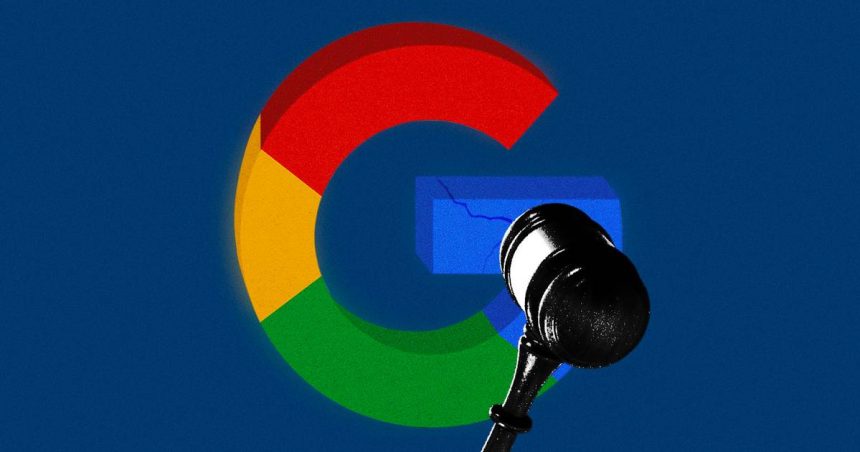Google’s days of playing Monopoly could be coming to an end.
On Thursday, a federal judge ruled that Google’s control over multiple facets of the online advertising industry are illegal, a blow for Google in the landmark trial that began last fall and put the internet giant’s ad tech under the microscope. In her ruling, US District Court Judge Leonie Brinkema wrote that the tech giant “willfully engaged in a series of anticompetitive acts to acquire and maintain monopoly power in the publisher ad server and ad exchange markets for open-web display advertising” in violation of the Sherman Act.
By “depriving rivals of the ability to compete,” Brinkema wrote, “this exclusionary conduct substantially harmed Google’s publisher customers, the competitive process, and, ultimately, consumers of information on the open web.”
During the trial last fall, the Justice Department alleged that Google monopolized three areas of online advertising: publisher ad servers, ad exchange markets, and advertiser ad networks. Brinkema found Google guilty on the first two, but ruled that the government “failed to prove” a monopoly on the third.
“The Court’s ruling is clear: Google is a monopolist and has abused its monopoly power,” Abigail Slater, assistant attorney general in the Justice Department’s Antitrust Division, said in a statement. “Today’s opinion confirms Google’s controlling hand over online advertising and, increasingly, the internet itself. I am extraordinarily proud of the dedicated public servants whose tireless efforts led to today’s decision.”
Big reputation: This is the third time in less than two years that Google has been found to be operating in violation of antitrust law. In 2023, a federal jury ruled that the company’s Android app store policies violated antitrust law, and last year, a federal judge ruled that Google’s search business was monopolistic.
Get marketing news you’ll actually want to read
Marketing Brew informs marketing pros of the latest on brand strategy, social media, and ad tech via our weekday newsletter, virtual events, marketing conferences, and digital guides.
What’s next? In a statement provided to Marketing Brew, Google said it disagreed with the ruling and intends to appeal the decision. While appeals could take years, Google’s business operations could stand to be drastically reshaped by these three decisions. Per the company’s latest earnings report, Google ads brought in $72 billion and search brought in $54 billion in Q4 of last year.
Brinkema could force Google’s hand and require the company to sell off parts of its ad-tech business, the remedy that was previously requested by the government; that will be determined at a later hearing, the date of which has yet to be set. In the meantime, a three-week hearing on next steps around the search case is scheduled to begin Monday. In that case, the Justice Department has also asked the court to break the company up.
This Google ad-tech decision is part of a larger reckoning around the consolidated power of Big Tech. Earlier this week, Mark Zuckerberg took the stand in federal court in an antitrust case brought by the FTC, which is focused on Meta’s ownership of Instagram and WhatsApp.
While Zuck defended the acquisitions, one of his 2018 emails displayed in court could provide some solace for Big Tech apologists.
“Most companies,” he wrote, “actually perform better after they’ve been split up.”
Read the full article here









